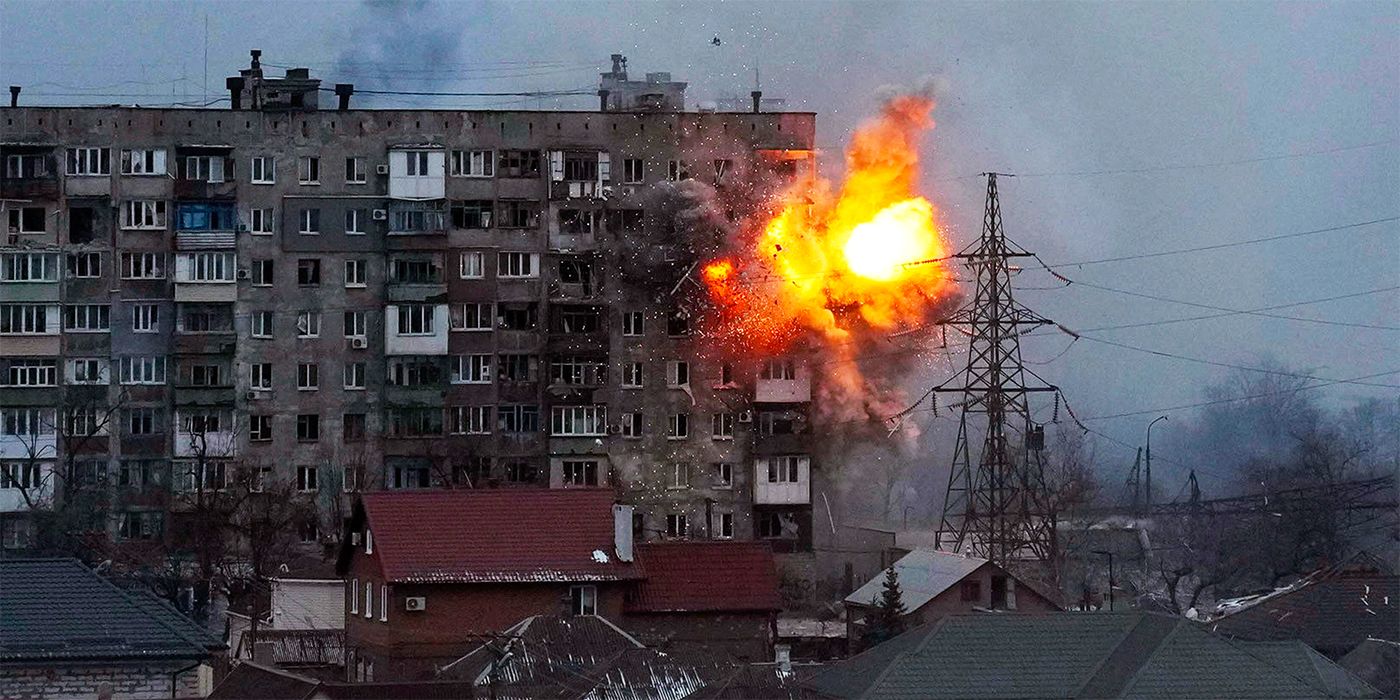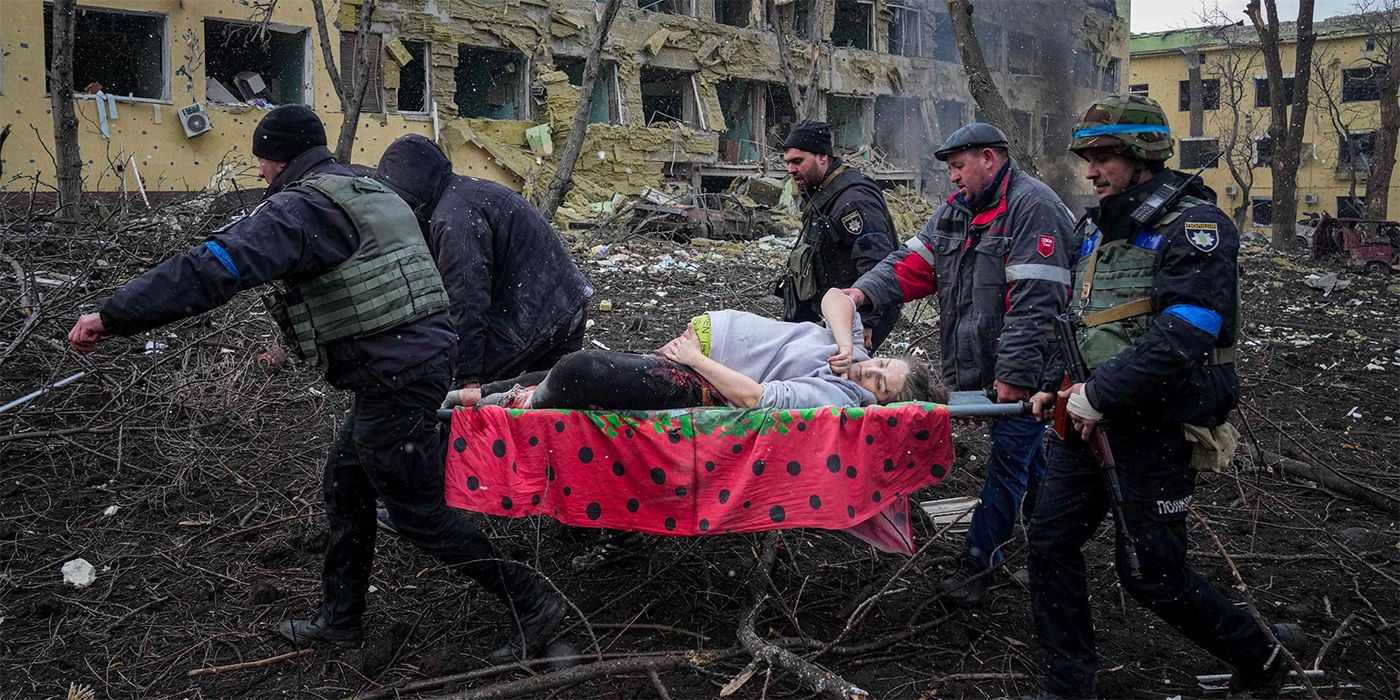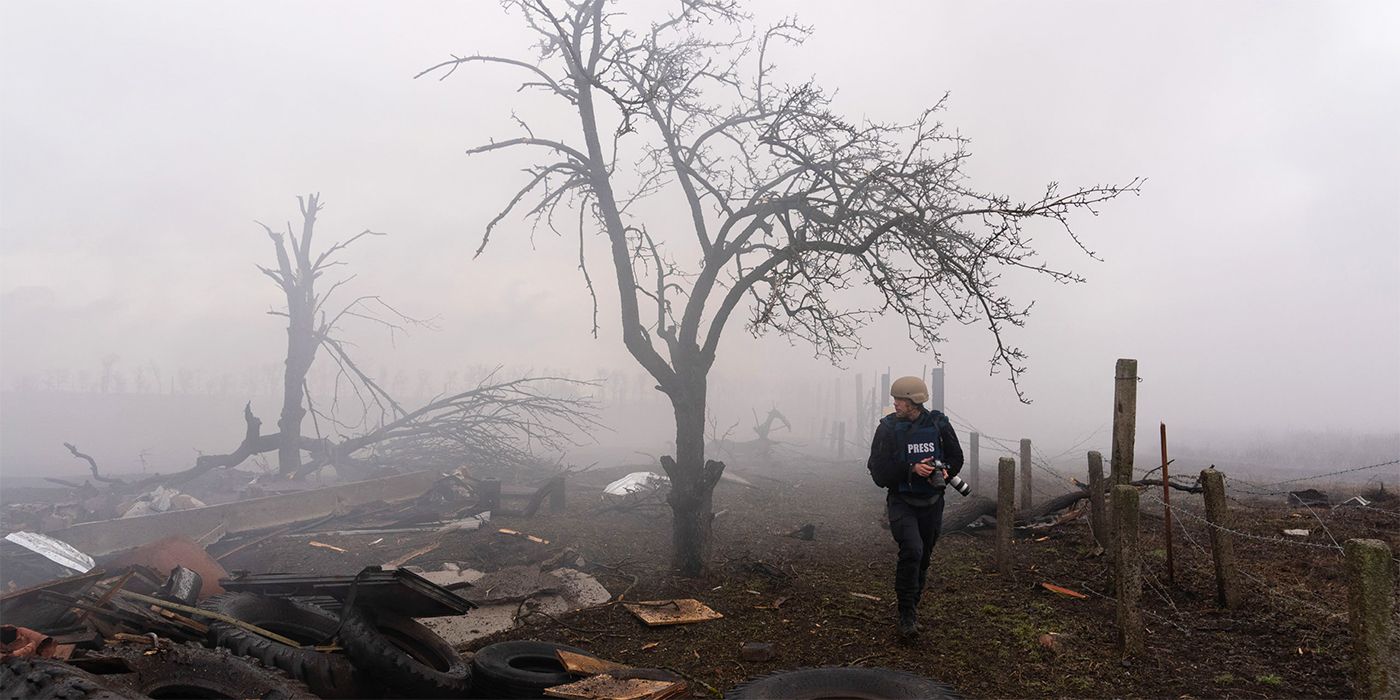I will admit that I avoided watching 20 Days in Mariupol for much of my time at Sundance Film Festival. That wasn't a reflection on its quality as a documentary, on the contrary, I had every confidence that it would be an informative and emotional watch. What I also knew was that it could be potentially traumatizing and difficult to swallow. A documentary covering the first 20 days of the siege of the port city of Mariupol laid in the fact meant that I knew I would see horrific imagery of Russia's invasion of the country.
But 20 Days in Mariupol feels essential as a piece of filmmaking, especially for international audiences who might not know just what it is like in Ukraine on the ground, even as the war continues to rage on. AP journalist and filmmaker Mstyslav Chernov and his small group of Ukrainian journalists go above and beyond in the documentary to show the rest of the world the truth and first-hand accounts of what happened in Mariupol. Much of Chernov's work was published in the news, offering a rare look into the city when all other international journalists fled before the invasion.
We follow Chernov and his crew from the very beginning of the siege to their escape on the 20th day, watching as conditions progressively worsened for the civilians, soldiers, and first responders of the city. Chernov's camera takes us to the faces of victims of shellings and bombings, terrified families who had to leave their homes behind in order to stay alive. We go behind the doors of overflowing hospitals that must triage the injuries of the entire city, seeing more blood and death by the day.
As expected, when watching 20 Days, I was left with a gut-wrenching feeling of helplessness and anger. Seeing news clippings of attacks is worrying, but following Chernov is actually heartbreaking. In one case, he goes to the site of a bombing at a maternity hospital. Yes, a maternity hospital. The mere thought is sickening, but it is made worse when his coverage is later twisted as misinformation and declared to be staged scenes by the Russian propaganda machine. On the ground, at the site where the Russian forces committed their war crime, we see dazed mothers, hear crying children, and we can feel the fear radiating from the victims. On one stretcher we see a pregnant woman, nearly full term, being carried away with a face frozen in shock. Later, when Chernov goes to the hospital that triaged these victims, we learn that the woman and her unborn baby both died from their injuries despite the efforts of medical professionals.
Chernov's particular focus on the first responders and at the hospital provides a new level of sorrow. We watch as doctors and nurses treat patient after patient — some mere infants — with dwindling essential supplies like painkillers, and they must swallow their own tears when the patients die and watch as the patient's family members sob over their bodies. Then they have to wrap the bodies up in body bags, and put them into an overflowing morgue, before burying them in mass graves between shellings and bombings.
While there can be something sterile and detached about watching news report after news report of what is happening on the ground in Ukraine, numbing people to the realities of war, Chernov's documentary is distinctly interested in the individual human faces behind this illegal invasion. We meet civilians who give us their personal accounts, some that we meet again later in a shelter, and others we see as corpses. Doctors and police give Chernov an opportunity to document the massacre, wanting the world to see just how bad it is after the Russians cut off the power, water, and internet to the city.
As a Ukrainian himself, Chernov's narration offers personal insight as he witnesses the siege and thinks of his own family, his two daughters. This is personal for him and so it feels deeply personal to us. He understands that people have a threshold for witnessing trauma, does adding more to the pile help? But when the people cry out to be seen, he doesn't turn the camera away. We watch as the industrial, thriving city slowly turns into a graveyard of cement, bodies, and ash. The strategic location of Mariupol makes it valuable in the war, but it means that the Russian forces will be much more determined.
At one point, a doctor tells Chernov that war is like an x-ray, "Good people become better, bad people become worse." While we only get a glimpse at the sight of looters in the city, 20 Days focuses on the heroes of the city. The ones working tirelessly to keep its civilians alive, driving across the city despite aircraft flying overhead and dropping bombs, to pull people out of fallen buildings and save lives. One of the police, Vladimir, determined to show the world what is going on, takes Chernov and his group to the only place in the city left with Wi-Fi and escorts them around to get the footage they need. Then, on the 20th day, with a Red Cross convoy leaving the city, the journalists sneak through and escape. The city falls on day 86 after an estimated 25,000 people died (though the number is likely higher).
There is no comfort when watching 20 Days in Mariupol, but it's the bitter pill we must all swallow to remind ourselves of what people are going through every day in Ukraine. Chernov's account is but a snippet of the war and should galvanize people into action. Through this war correspondent's eyes, we can see the true face of the war, and it's hard to turn away from it.
Rating: A



